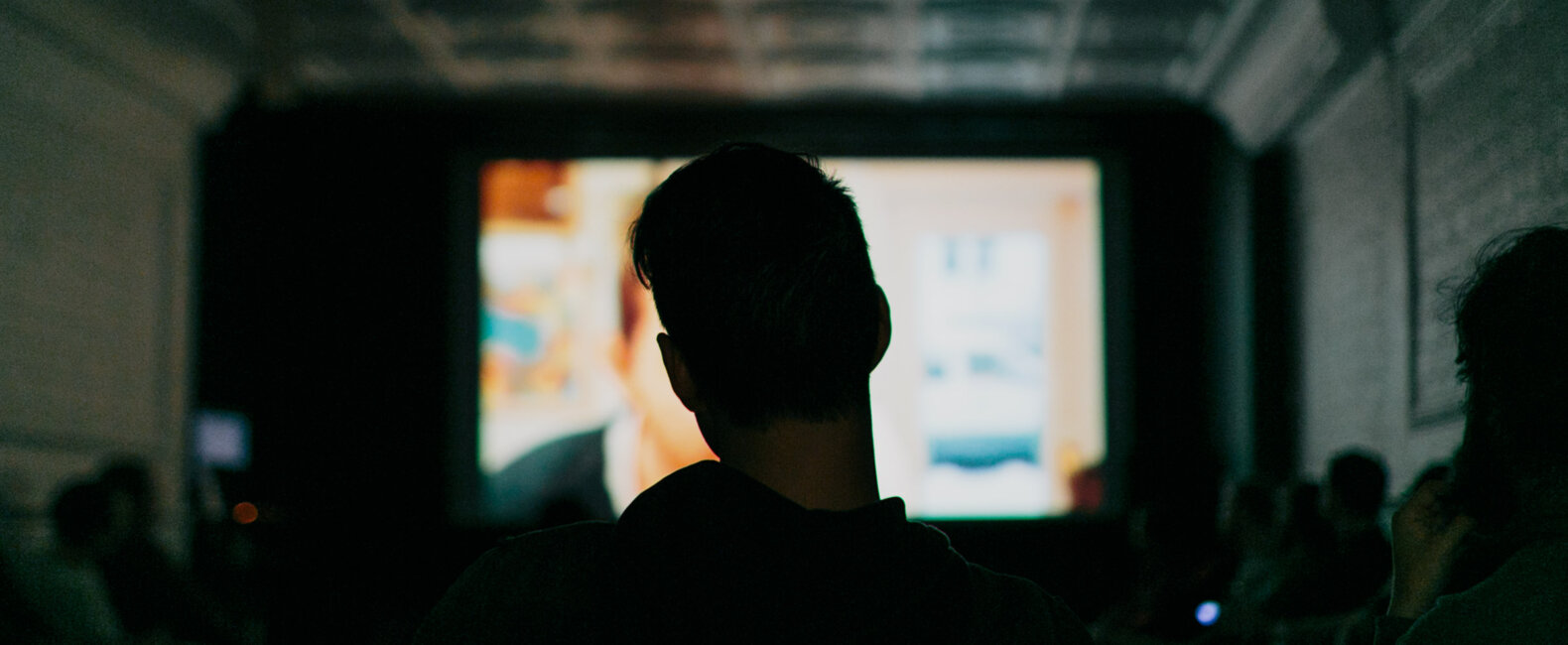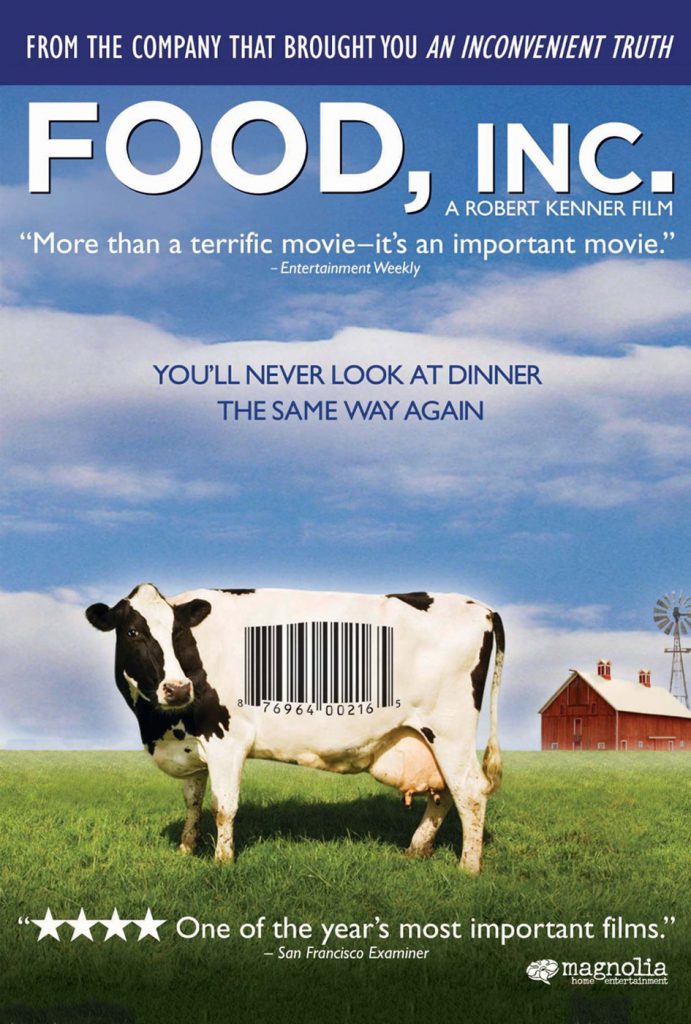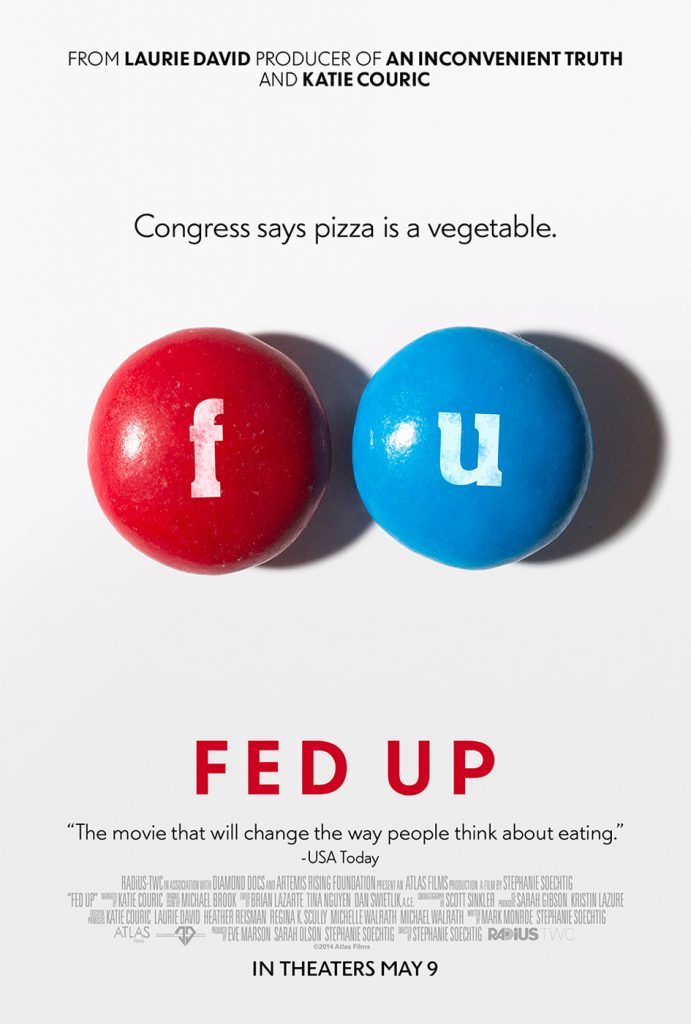Wendy Cohen has dedicated her life to promoting films that make a difference. You might call them advocacy films or socially conscious films. Or it might just be easier to call them by their names: Food, Inc.; The Cove; Inequality for All; Rich Hill; Waiting for “Superman” — just to name a few.
After graduating from college in Montreal, Wendy got an internship at an organization called Women Make Movies, where she received her first taste of what would become her lifework. “Back then we called them ‘outreach campaigns,’” she told us. “I remember using the phone book and looking for women’s organizations and shelters and HIV support groups that may be interested in hosting screening of Love & Diane, one by one reaching out to these places to set up screenings. That was the first time I saw how film could be used by communities to make a difference.”
Now, 13 years later, Wendy continues to find new ways of promoting and supporting socially conscious films through her most recent venture, Picture Motion. We recently talked to Wendy about the power of film, the responsibilities of filmmakers, and why now is both a wonderful and terrifying time to make documentaries.
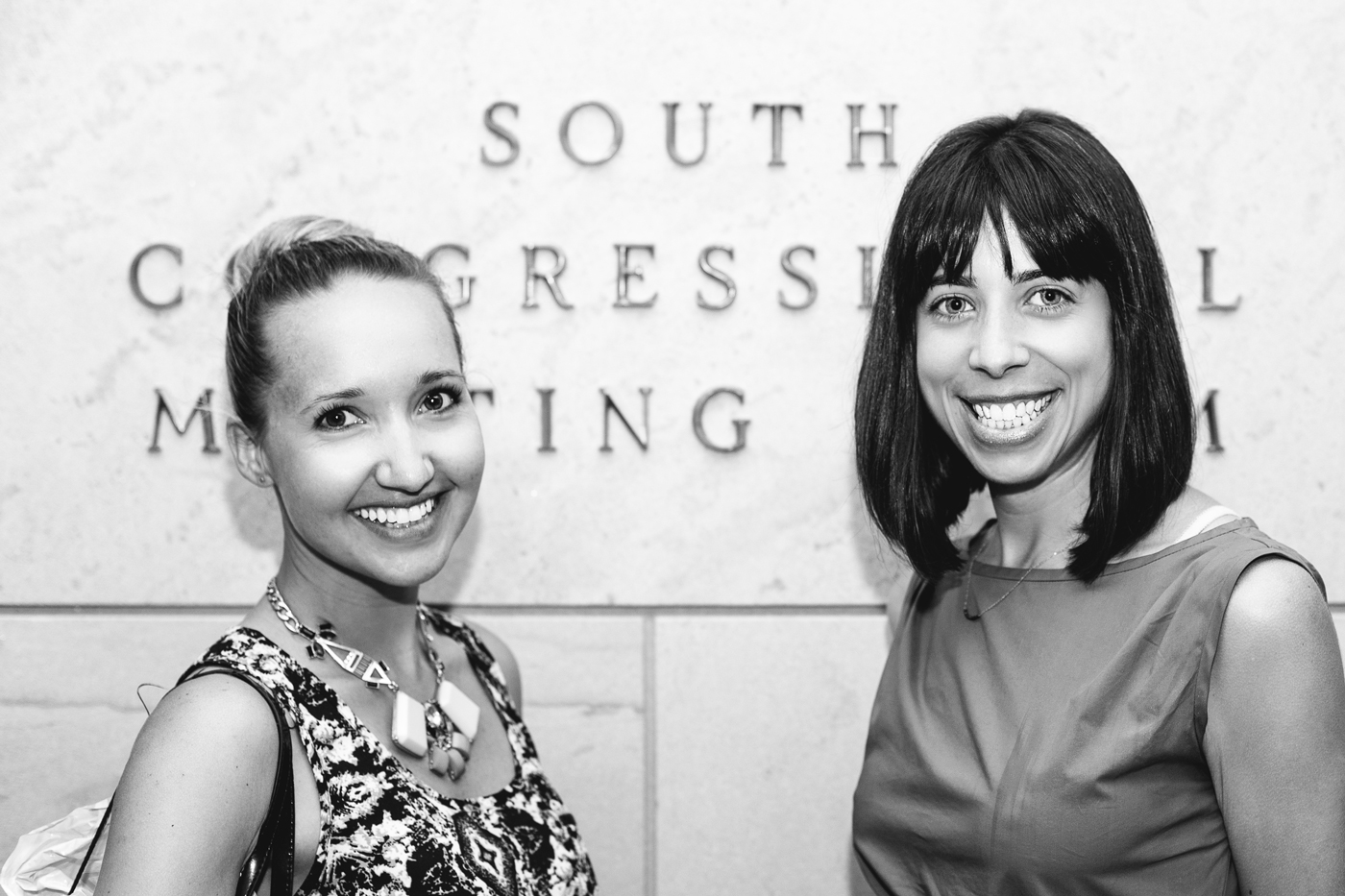
I didn’t know you lived in California. I assumed you were in Brooklyn.
That’s where Christie Marchese, the founder of Picture Motion, is. We have seven gals located there, as well as an office in DC. After I joined the company, I was thinking about bringing my husband and my dog out to the East Coast. But there were so many clients and filmmakers in L.A. and San Francisco, we decided we should keep someone out here. So I stayed.
Do you work from home?
My husband and I built a freestanding structure in our backyard that I work from.
Like a shed?
It’s a little bigger than a shed. It has French doors, built ins and it’s surrounded by orange and lemon trees. It has lots of room for three big desks—me, Kait Halibozek and we have an intern a few days a week.
Can you tell me a little bit about the vision behind Picture Motion?
Sure. I know films and stories can change the world. But to do that, they need to get out into the world. They need to find their audience. We have this tagline on our website: “Films can change the world. We make sure they do.” So we’re not the storytellers; we’re that extra wind behind stories that help them make the most impact. That’s really the vision behind the company — to do marketing and advocacy for films in a creative, unique way.
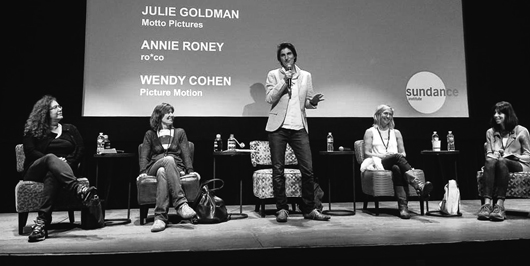
“The beauty of this world we’re living in right now is that a movie could come out this year, and two years from now it could find its moment.”
What’s the secret formula for making a film successful? What’s the secret sauce?
I think trying to find a secret sauce is like trying to figure out what makes a video go viral. Nobody really has the secret sauce. There are certain things you can do to help a film catch on, but nobody knows the secret sauce.
On every film, we try to do something we’ve never done before. We always start with a lot of research, a lot of listening. We make 20, 30, 40 phone calls to hear what’s happening in the issue, what the issue is going to look like in the next 12 months. What are the organizations that are working on this, who has been doing this work since long before the film existed and will be doing this work long after? We figure out how the film can help them, these organizations. Then we put a strategy together. We think about what we want to accomplish, the goals.
Sometimes with films like these, you don’t need millions of people to see the movie to accomplish your goal. It could be just four people. Four of the right elected officials who could make an enormous impact. Of course, ideally you want everyone to see it, but you need to come out of the gate knowing what you’re trying to accomplish.
Can you usually tell which films are going to catch on?
You can tell right away if a movie is well told and entertaining. You can tell that an audience is going to want to stick with it for two hours and then talk about it. The first time I saw The Cove, I was like, “Oh my gosh, this is operating on a whole different, amazing level.” It was like an Ocean’s Eleven spy movie. But can you tell if it’s really going to strike? I don’t know. I’m the type of person who, when I love something, I love it in a very huge way. I’m so enthusiastic about it. I think it’s the most awesome thing. So when I see a movie I love, I assume everyone is going to love it too. The beauty of this world we’re living in right now is that a movie could come out this year, and two years from now it could find its moment.
You’ve been involved in promoting cause-based films for a long time. Is there something unique about film in terms of its ability to further a cause?
It’s a few things. First, getting someone to watch a movie is easy. It’s very social and it’s a low barrier to entry, especially now that it’s coming directly into your living room. So the accessibility makes film particularly effective for causes.
Second, films are the perfect length of time to get to know characters, fall in love with them. Most people don’t have time to watch a 22-episode television show to learn about a cause. Even reading a book can be a big ask and investment. But you bring people together in a room to watch a film, and suddenly it’s so much easier to talk about a very tough issue. Suddenly you have these two hours of characters and experts you can talk about. It’s a shared experience. Films give everyone a baseline. After Waiting for “Superman” came out, everyone was talking about these kids. The issue becomes much more understandable when a story boils it down to a character you can really care about. I think that’s one of the most powerful things a film can do.
And I also think it’s about empathy. We seem to be lacking that in this country these days. We’re living in such divisive times. Anything we can do to heighten empathy — especially young kids, teaching them to think about others — it’s a great gift that stories can do like no other.
Is it just me, or do documentaries seem to be getting a lot more popular?
You know, in the past the word documentary had a bit of a PR problem. It needed a better publicist. Documentary sounded like spinach. Like, Oh my gosh, I’m going to learnsomething. People would roll their eyes and think it was going to be a snooze fest. But we’re not there anymore. Now it’s the golden age where there is this heightened awareness and love of documentaries.
Why do you think that is?
That is a great question. It’s due to a few things. Since I started working with docs in 2003, there has been a definite shift in the way we consume news. I don’t remember us having a 24-hour news cycle the way we do now. Or the fracturedness — you can read the news that confirms what you believe without ever having to hear an opposing opinion. So I think filmmakers and documentarians are taking on subjects in a way that our news just can’t anymore. I feel like there is this hunger for more complex stories. We don’t want to spend just 10 seconds on a subject; we want to spend two hours. I’m not saying filmmakers have to be journalists. They’re storytellers. But I think they’re filling a void.
I also think documentaries are being held to a higher standard. We’re holding them to the same standards we hold any film. They need to be entertaining. They need to be well produced. They need to look great and sound great. The story needs to be well told. Just because a film is important doesn’t make it good. If you have a really bad movie, it could be about the most important thing in the world, but no one is going to pay attention to it.
Another reason documentaries are so popular is because of Netflix and Amazon, VOD. If you miss a film in theaters, you know where you can see it. And if you find one film you’re interested in, it’s so easy to find more. You have films like Inequality for All that are still being watched by huge amounts of people. Films have a long tail like they’ve never had before.
It seems like a particularly scary time to be working in nonfiction. Every week someone is getting in trouble for getting things wrong. The Rolling Stone article about the University of Virginia. Brian Williams. There’s a lot of responsibility that comes with work like this.
That’s true. It’s a difficult time. But first and foremost, a reporter should never lie. But also it is empowering that we live in a time that if I see, read, hear something that isn’t true, I can do something about it. If you try to lie, somebody is going to find out. It was much easier in the past to get away with something. Now everyone is an investigative reporter – which is amazing.
What do you think a filmmaker’s responsibility is for the things he or she puts out into the world?
That’s a huge question and an interesting one. I think it’s super hard for a filmmaker to pretend they don’t have a point of view. And I don’t think it’s necessarily beneficial to pretend you don’t have a point of view. You need to be honest about your bias. I think that makes for a better story anyway. And while you should always try to show both sides of the argument, you don’t have to pretend you don’t have an opinion. There are films I know from the outset that I won’t agree with. A pro-life documentary, for example. I’m a pro-choice individual. So I’m sure that if I watched a pro-life film, I wouldn’t agree with it; but I would appreciate that it was open and honest about its opinion, about the story it was telling.
I also think the question is, What is the audience responsible for? Because we are all responsible as an audience. We are response-able. We should be able to see something and be able to question it, to have some level of media literacy that allows us to decode it. Who is making this? Who is paying for it? Who is it for? As an audience member, it’s your responsibility not to be duped.
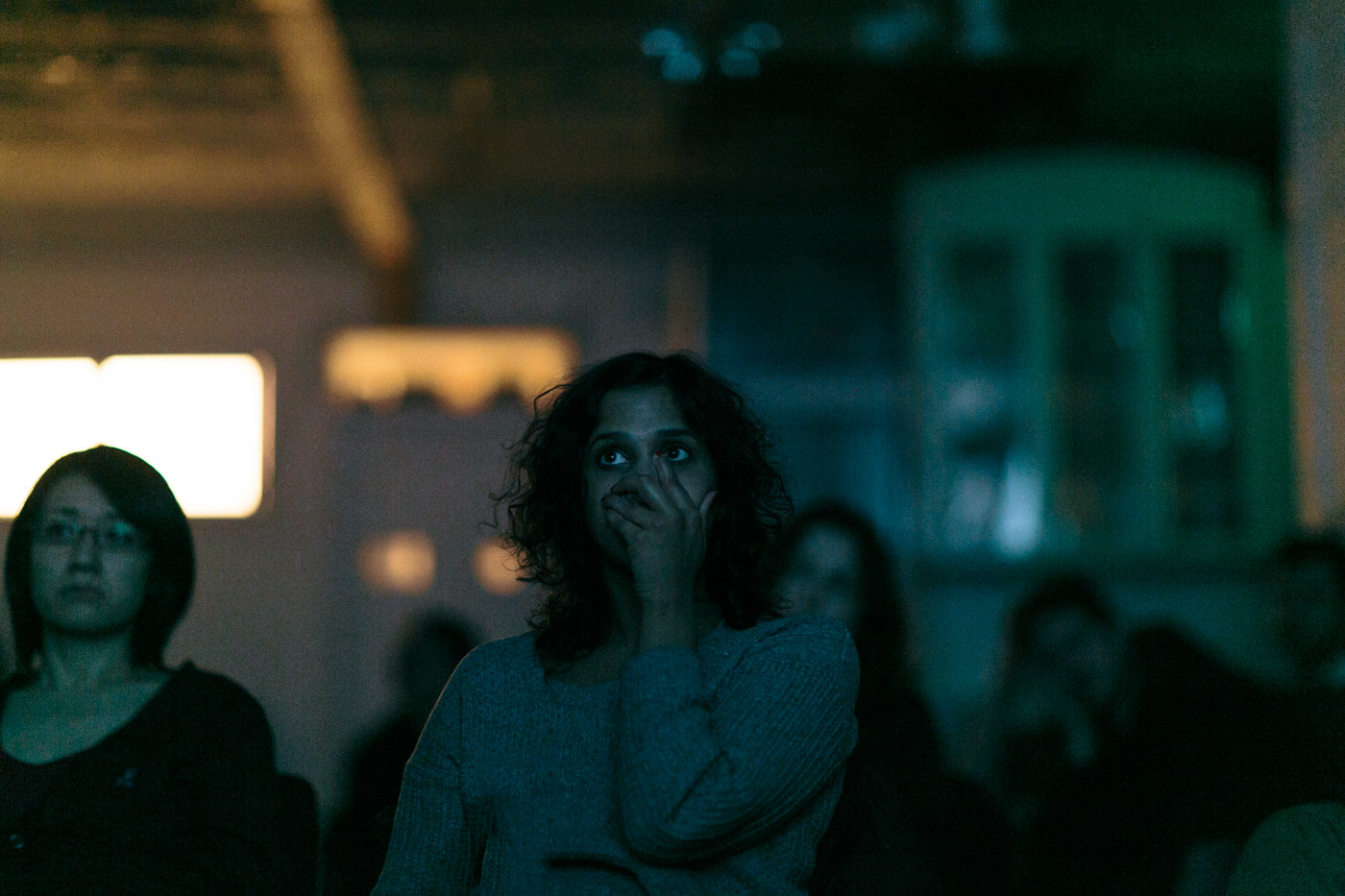
Wendy’s passion for films and social change is contagious. We love that she has found a way to put them together. It’s easy to forget the responsibility we all have as creators. The things we put out into the world, even digital things, have a weight to them. They can make a difference. Talking with Wendy reminded us how awesome and how important that power really is.















































































